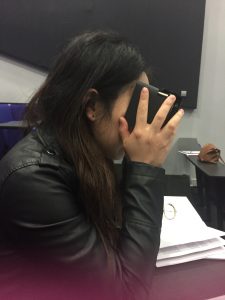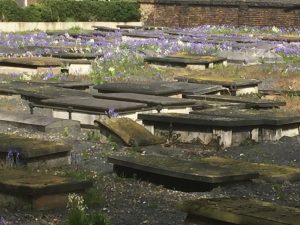Thinking Materials
the conference theme:
Materials are more complicated than simply a resource in a lesson. Each material is a living and breathing entity that might embody beliefs, theories, experiences, departmental needs and approaches, as well as being emergent in the time and space in which it is employed. Materials also need to work in both the short-term to address and be adaptable to our students’ needs, but also have longevity to ensure consistency in terms of curriculum aims and syllabus goals. The mode of delivery will also influence the way that material becomes alive ‘on the ground’ in the classroom, through paper-based and/or digital delivery. Maintaining the balance between so many different factors can demonstrate the high-level skills of practitioners, but at times make us feel that we are juggling roles. This may be consciously but also subconsciously as we teach in real-time and manage our workload with limited time to reflect on the many dimensions that might influence our choices and material development.
Professor Kathyrn Richardson lead the first session, where all delegates were asked to bring along a learning resource to share in pairs, and we all explained, tried, challenged and shared new ideas and ways of working. My own ‘Thinking Material’ was , of course, a google cardboard, which attracted much attention. My host, Jennefer Brown

Engaging with technology
as well as hosting fellow external speakers Dr Diane Potts (Lancaster) Liz Wilding (Reading) and Brian Daughton (Imperial) ran a session that reflected back on 100 years of teaching methods, in her talk. I was very privileged to hear Chris Mansfield speak about ‘Where’s the Stuff’ or ‘An experienced practitioners perspective of the tyranny of materialist thinking in EAP‘ where he modelled the stance of drawing upon the teacher, the students and the artefacts in the room only to engage and develop student thinking. This was followed by an excellent talk by Mark Holloway

In the centre of the modern campus, a surprise
introducing the concept of the Language Teachers movement of ‘DOGME’ based of Thornbury’s (2000) seminal work launching the discussion list. Very much along the lines of my own teaching principles, it has student engagement at the core, and the role of the teacher in facilitating learning.
The campus itself was a surprise, entering from the Mile End Road, into a modern complex, turning the corner is an amazing Jewish Cemetery, dating back to 1733, with a riot of spring flowers tumbling over the ancient gravestones.
The ‘Thinking Materials’ was an inspirational brief to talk to, and my presentation was entitled: Create, Collaborate and Curate: working and supporting 21st Century learners. It explored potential ways forward in terms of thinking about how we can reconceptualise materials for the digital age. Open Educational Resources (OERS) offers the affordances for us to create, individually or in groups and to share our artefacts for reuse and repurpose; digital tools can assist us in collaborations across the world, or even just across our own campus. Curating of our own work as well as that of our students can offer affordances of building profiles for different stakeholders in the learning process (for example, librarians, learning technologists, ALS as well as language experts) and by sharing we develop more collegiate ways of working.
I am unable to thank all the wonderful participants and speakers by name, but this was an exceptional conference, and I was privileged to be invited to take part.







